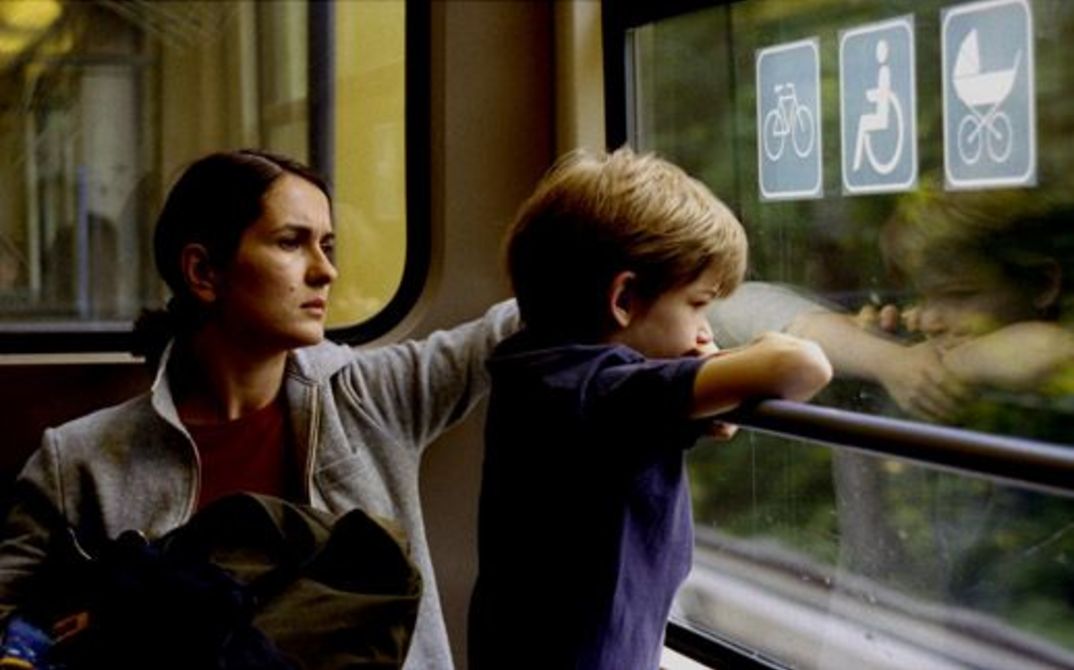Raoul Peck started studying at the dffb in the early 1980s. In his graduation film "Haitian Corner" (FRG/USA 1987), he explored the reality in Haiti where he was born via a small bookstore in New York where stories of emigration, exile and arrival concentrated. L'HOMME SUR LES QUAIS (The Man by the Shore, Haiti 1993, 21.9.) intensified this examination: In his third feature-length film, Peck looked back on the Duvalier regime that began in 1957 through the eyes of a young girl, Sarah. Traumatic memories illustrate how society was permeated by violence. In Christian Petzold's YELLA(G 2007, 25.9.), Yella (Nina Hoss) escapes her marriage and dead-end life in provincial East Germany for the bubble of West German glass facades. She appears to come to terms with her burden-free new life in a playful manner. Petzold shows her in the space between the world she comes from and that of her new life - not completely torn but somewhat alienated. Directly after the fall of the wall, Christian Petzold, Thomas Arslan, Stephan Settele and others travelled to Berlin and its outskirts as part of a course run by the documentary filmmaker Peter Nestler. For Petzold, YELLAmarked a shift in direction towards Germany's new member states, which he pursued with "Jerichow" (G 2008) and "Barbara" (G 2012). Angela Schanelec arrived at the dffb in 1990, a time when Ludger Blanke, Thomas Arslan and Christian Petzold's disengagement with the aesthetic blind alley of late 1970s fictional film had already taken on a vague shape. In her first big films, she explored the new possibilities of narrative. Her films do not want to "uncover or ironize reality but produce evident truths - as polar opposites to the vitalism of Dogme - by lending their characters beauty and dignity," which is how Rainer Gansera once described the approach of the "Berlin School". Schanelec's MARSEILLE (G 2004, 28.9.) depicts the young photographer Sophie drifting through Marseille, Berlin, her own life. Wonderful imagery (by dffb graduate Reinhold Vorschneider) shows the young woman's meandering, aimless quest for herself. Lars Kraume's KEINE LIEDER ÜBER LIEBE (No Songs of Love, G 2005, 30.9.) was inspired by the aesthetics of family or amateur videos. Kraume tells the story of a love triangle between two brothers, Tobias (Florian Lukas) and Markus (Jürgen Vogel), and Ellen (Heike Makatsch), Tobias' girlfriend. Tobias plans to make a documentary about his brother and his band Hansen. One of the reasons for the film project is that he is worried that Markus and Ellen have gotten closer than would like. One of the major sources of the film's vitality is the band scenes at a concert organized by the Hamburg label Grand Hotel von Cleef founded in 2002.

50 years of dffb
On 18th September 1966, the Deutsche Film- und Fernsehakademie Berlin (dffb) became the first independent film school in West Germany. To celebrate, the dffb is showing a selection of films made by former students as the starting point of a reappropriation of the not so small contribution that the dffb has made to German and international film production over the years. This is part of a series of anniversary events, which will include a bigger retrospective in spring 2017.


